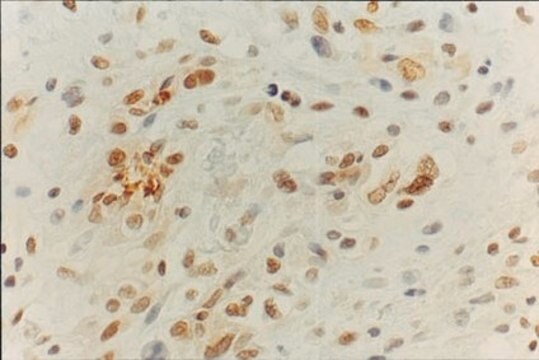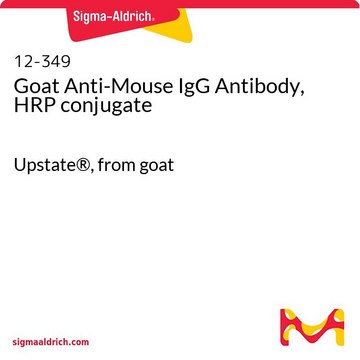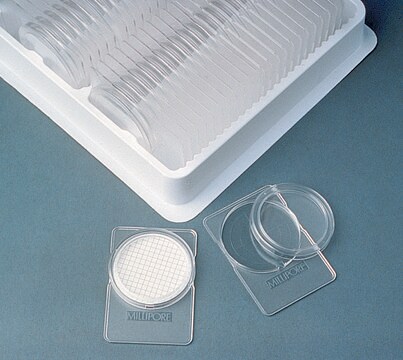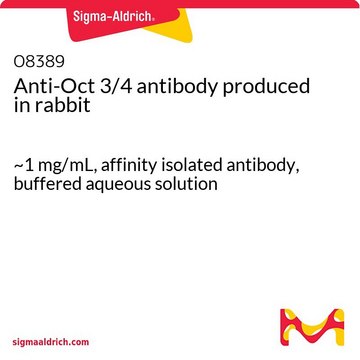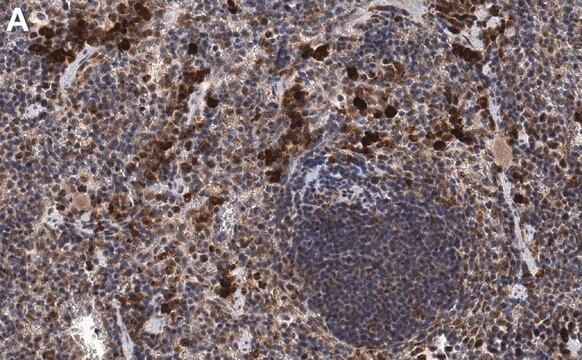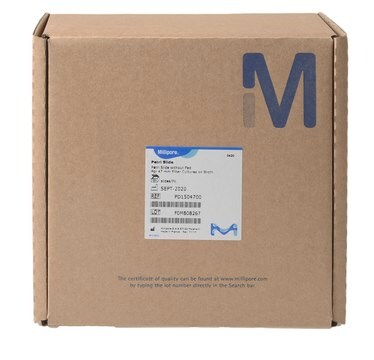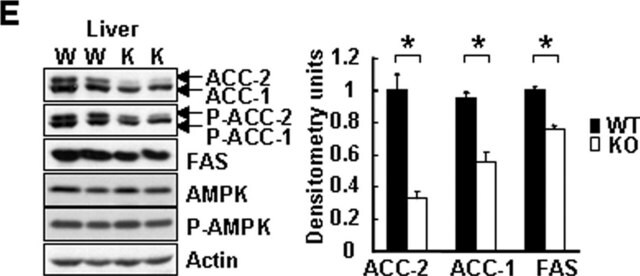ZMS1088
Anti-MGMT Antibody, clone MT3.1 ZooMAb® Mouse Monoclonal

recombinant, expressed in HEK 293 cells
Synonym(e):
Methylated-DNA-protein-cysteine methyltransferase;ECC:2.1.1.63;6-O-methylguanine-DNA methyltransferase;O-6-methylguanine-DNA-alkyltransferase
About This Item
IHC
WB
immunohistochemistry: suitable
western blot: suitable
Empfohlene Produkte
Biologische Quelle
mouse
Qualitätsniveau
Rekombinant
expressed in HEK 293 cells
Konjugat
unconjugated
Antikörperform
purified antibody
Antikörper-Produkttyp
primary antibodies
Klon
MT3.1, recombinant monoclonal
Produktlinie
ZooMAb® learn more
Form
lyophilized
Mol-Gew.
calculated mol wt 21.65 kDa
observed mol wt ~22 kDa
Aufgereinigt durch
using protein G
Speziesreaktivität
human
Verpackung
antibody small pack of 25 μL
Grünere Alternativprodukt-Eigenschaften
Waste Prevention
Designing Safer Chemicals
Design for Energy Efficiency
Learn more about the Principles of Green Chemistry.
Erweiterte Validierung
recombinant expression
Learn more about Antibody Enhanced Validation
sustainability
Greener Alternative Product
Methode(n)
immunocytochemistry: suitable
immunohistochemistry: suitable
western blot: suitable
Isotyp
IgG1
Epitopsequenz
Unknown
Protein-ID-Hinterlegungsnummer
UniProt-Hinterlegungsnummer
Grünere Alternativprodukt-Kategorie
, Aligned
Versandbedingung
ambient
Lagertemp.
2-8°C
Posttranslationale Modifikation Target
unmodified
Angaben zum Gen
human ... MGMT(4255)
Allgemeine Beschreibung
Spezifität
Immunogen
Anwendung
Evaluated by Western Blotting in Raji cell nuclear extract
Western Blotting Analysis: A 1:1,000 dilution of this antibody detected MGMT in Raji cell nuclear extract.
Tested applications
Western Blotting Analysis: A 1:1,000 dilution from a representative lot detected MGMT in lysate from MCF-7 cells and nuclear extract from Jurkat cells.
Immunocytochemistry Analysis: A 1:100 dilution from a representative lot detected MGMT in MCF-7 cells.
Immunohistochemistry (Paraffin) Analysis: A 1:100 dilution from a representative lot detected MGMT in human small intestine tissue sections.
Note: Actual optimal working dilutions must be determined by end user as specimens, and experimental conditions may vary with the end user
Evaluated by Western Blotting in Raji cell nuclear extract
Western Blotting Analysis: A 1:1,000 dilution of this antibody detected MGMT in Raji cell nuclear extract.
Zielbeschreibung
Physikalische Form
Rekonstituierung
Lagerung und Haltbarkeit
Rechtliche Hinweise
Haftungsausschluss
Sie haben nicht das passende Produkt gefunden?
Probieren Sie unser Produkt-Auswahlhilfe. aus.
Lagerklassenschlüssel
11 - Combustible Solids
WGK
WGK 1
Flammpunkt (°F)
Not applicable
Flammpunkt (°C)
Not applicable
Hier finden Sie alle aktuellen Versionen:
Analysenzertifikate (COA)
Die passende Version wird nicht angezeigt?
Wenn Sie eine bestimmte Version benötigen, können Sie anhand der Lot- oder Chargennummer nach einem spezifischen Zertifikat suchen.
Besitzen Sie dieses Produkt bereits?
In der Dokumentenbibliothek finden Sie die Dokumentation zu den Produkten, die Sie kürzlich erworben haben.
Unser Team von Wissenschaftlern verfügt über Erfahrung in allen Forschungsbereichen einschließlich Life Science, Materialwissenschaften, chemischer Synthese, Chromatographie, Analytik und vielen mehr..
Setzen Sie sich mit dem technischen Dienst in Verbindung.